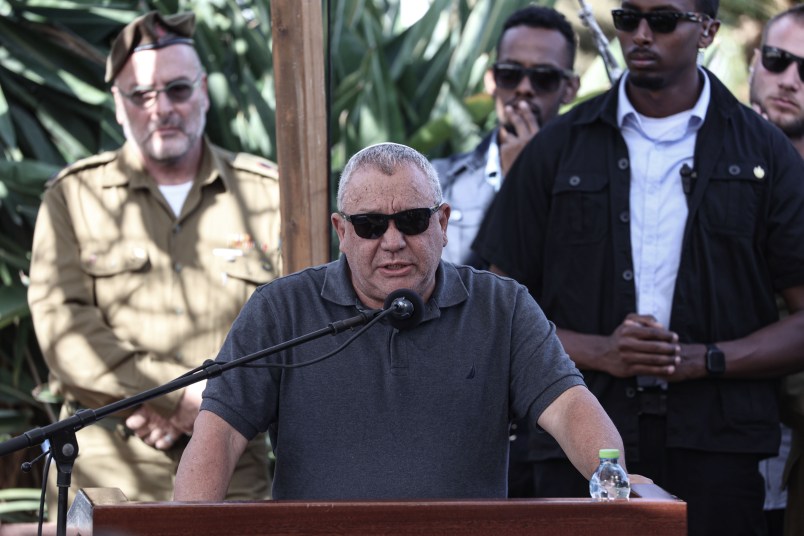It’s been clear for some weeks that there is growing division in the Israeli war cabinet. Now it appears to be breaking into the open, with indications that a new election could come sooner than later.
First a bit of stage-setting and context to explain the moving pieces and what this all might or might not mean.
On October 7th, the day of the Hamas massacres in southern Israel, Israel was led by a narrow and very right-wing coalition government headed by Benjamin Netanyahu. Israel had been embroiled for most of the previous year in a highly polarized fight over the government’s effort to dramatically curtail the power of the country’s Supreme Court. The massacres shattered the public’s confidence in Netanyahu, which had kept him in power since 2009 with only one intermission in 2021 and 2022. Soon after the outbreak of the current war, Netanyahu was able to bring one of the two main opposition parties, National Union, into his government.
The principals of National Union are two former IDF chiefs of staff, Benny Gantz (2011–15) and Gadi Eisenkot (2015–19). As part of the deal for National Union to enter the government, a war cabinet was created which controls the conduct of the war. The war cabinet is made up of Netanyahu, Gantz and Defense Minister Yoav Gallant. Eisenkot and Netanyahu fixer Ron Dermer have observer status. There is a larger security cabinet which includes a number of the weirdos and extremists in Netanyahu’s government. But the war is being run by the war cabinet, with the rest on the outside looking in. That fact has been hugely significant in securing the credibility of the war effort within Israel, as well as the stability of the government itself. In U.S. terms, Gantz and Eisenkot serve as two adults in the room. They’re both former chiefs of the Israeli military, in a society in which former chiefs have immense public esteem. Most go right into electoral politics at the highest level after retirement. Many are considered potential prime ministers, though only two, Yitzhak Rabin and Ehud Barak, have even been PM. While they’re not in charge of war policy (Gantz can be outvoted by Netanyahu and Gallant), Gantz and Eisenkot have visibility into everything and they could, presumably, short-circuit any decision they deemed sufficiently out of whack or crazy with a credible threat to resign.
An additional fact: Eisenkot’s son was killed in the fighting in Gaza in December and his nephew was killed a week later.
That’s the relevant context.
In recent weeks, reports in the Israeli press have suggested that there’s now a basic division. Gantz and Eisenkot believe Israel needs to prioritize a deal to release the remaining hostages, even at the expense of settling for less than a total defeat of Hamas. Netanyahu and Gallant disagree. Eisenkot has been increasingly vocal about this in recent days, arguing that the idea that the hostages will be released by more fighting or an Entebbe-style raid is pure fantasy.
Now Eisenkot has sat down for a set-piece TV interview in Israel in which he makes the same argument — time to make a deal to release the remaining hostages. He also places the blame for the October 7th massacres squarely on Netanyahu’s shoulders, and says he and Gantz thwarted a preemptive strike against Hizbollah in Lebanon that would have given Hamas military chief Yahya Sinwar the regional war he wanted all along. He also said Israel needs to have new elections in the next few months to restore legitimacy. (Notably, former PM and Chief of Staff Barak made the same argument yesterday about the necessity of an early election. He calls for Gantz and Eisenkot to demand that Netanyahu hold an election no later than June or set in motion a chain of events leading to a domestic political crisis if he doesn’t relent.)
These actions don’t seem consistent with someone who wants to or will be able to remain in the government for long.
(Also of note, here’s an opinion piece pushing an “all for all” hostage deal penned by Gershon Baskin, who’s played a key role as an intermediary between the Israeli government and Hamas in the past.)
It’s worth noting that Netanyahu does not need National Union to remain in power. He has a three-seat majority without them. But without the legitimacy heat shield of Gantz and Eisenkot, it’s not clear how long elections can be put off. Since the beginning of the war there has been overwhelming public support for Netanyahu leaving office as soon as the war is over. There’s a growing chorus that notwithstanding limited counterinsurgency operations and tunnel destruction the war basically is over, at least in the sense of the kind of ongoing public emergency that has justified the government’s continuance in office so far.


 Member Newsletter
Member Newsletter
